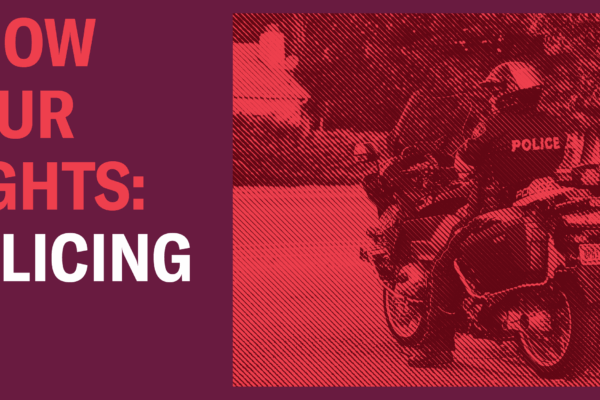Being stopped by police can be a stressful experience. Below, we describe what the law requires and also offer strategies for handling police encounters. The burden of de-escalation does not fall on the people — it falls on the officers — but you cannot asssume officers will behave in a way that protects your safety or respects your rights. You may be able to reduce risk to yourself when interacting with police in Louisiana by following these tips.
Download PDF versions below. This information is not intended as legal advice.
Related Content

Louisiana State Police ordered to release records related to wrongful death shooting lawsuit
Stay Informed
Sign up to be the first to hear about how to take action.
By completing this form, I agree to receive occasional emails per the terms of the ACLU’s privacy statement.
By completing this form, I agree to receive occasional emails per the terms of the ACLU’s privacy statement.

